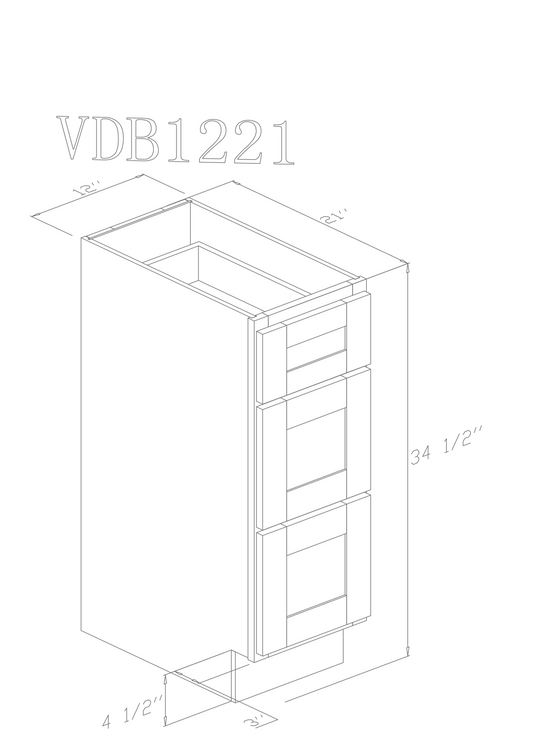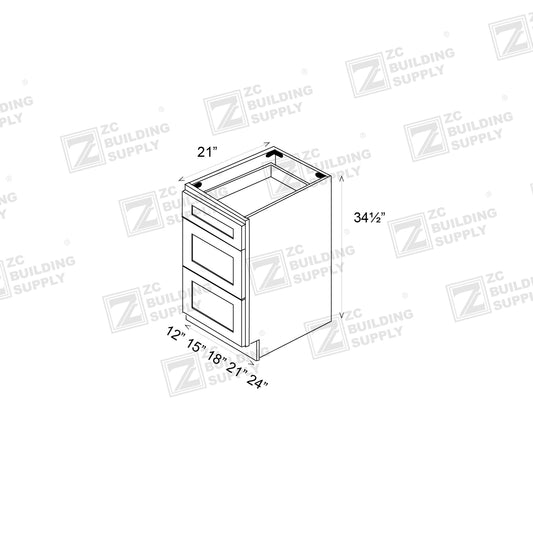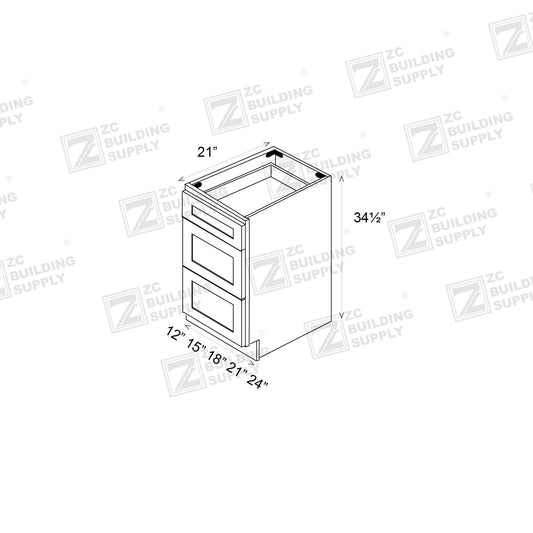All About Sealing Granite Countertops
Granites are not inexpensive things that you shop for to create a beautiful kitchen. They are a natural beauty of the Earth and you would want them to last for as long as possible like new.
Even though your kitchen granite is not very porous, it doesn't require any sealing at all. I would still certainly recommend you to apply a layer of sealer over the countertop.
The reason being that it can help give it an extra layer of protection. This will help prevent color changes in case of any accidents.
Accidents like food and beverage spills that will stain or dull the beautiful surface over time. And making the color more darker or creating wear and tears that dull the texture. So if it gives you a safe of mind, you should certainly apply a good sealer over your countertop.
Does Your Countertop Need Sealing?

Even though many installers and maybe even your contractors recommend sealing. Not all granite countertops require sealing every year or at all.
The reason being that it depends a lot on the homeowner’s expectations and also their care for the stone. Before 1995 there weren’t even any sealers available on the market. Nor were there many cases of staining the granite countertops.
Granite sealers are unnecessary for most homeowners. For those whose countertops are not very porous. And who spends time cleaning the countertops after each meal and after cooking. When there’s no substances left on the counter there will not arise issues of staining.
How Long Does Granite Sealers Last?
Countertop sealers generally last for around 3 years. With some sealers able to last for over 5 to 10 years.
The real answer of how long the sealer will last depends really upon how susceptible is the granite to staining. If you have a really porous stone, then you might even need to seal it every 3 months and annually.
Does Sealing Granite Make Them More Sanitary?

Many homeowners worry that granite countertops will hold onto bacteria or germs. But the nature of granites make them resistant to harboring bacteria.
Many such bacteria and microorganisms are harbored inside the surface liquids. Later seeping inside the crevices of the granite from which they can thrive.
Although a daily sanitization with soap and hot water is more than adequate for cleaning away the bacteria. If you want to make them more sanitary it is a good idea to apply a layer of sealer.
Regular sealing of the granite every year is enough to lower the chances of these existing bacteria. Preventing bacteria and germs from hiding inside the crevices and pores of the countertop.
Do You Need Sealing for Polished Granites?
For different textures of granites there will be differences in the amount of required sealing that needs to be done. For one thing, an already polished granite(source) will not require as much sealing to be done as a honed slab.
This is because polishing a granite countertop worms away the peaks and microscopic “mountains” of the stone. Abrading the peaks until altogether they are perfectly flat or leaving the stone with just minimal “hills”.
After the peaks are flattened the stones are then applied a layer of chemical treatment. This gives the granite a clean surface with a spectacular shiny reflection.
Even when the peaks are mostly removed the granite will not have absolute protection from staining and bacteria. This is due to the fact that the layer of polish and grinding away of the “hills” only makes it more resistant to water staining, etching, and holding onto bacteria. Though not actually providing absolute protection.
Comparison to Leathered and Honed Granite
Since honed and leathered granite does not have the layer of polish it is still as affected like regular granites. Susceptible to issues like staining and etching.
That’s why if you choose leathered and honed granites you will likely need more sealing for the slabs than the amount of sealing that’s needed for a polished slab.
What’s the Point of Sealers

From a microscopic view of the granite, the surface is composed of many peaks and valleys. When water is absorbed it clings to the porous surface, hence causing staining.
Generally, liquids like water or oil that are spilled on the counter won’t permanently damage the granite. Since most liquids that are spilled over the countertop will evaporate in room temperature in half an hour. Leaving behind only a temporary discoloration to the granite.
Granite countertops only require sealing because any acids and other substances might get into the material. But due to the fact that these stones are very porous, make granites also susceptible to the problem of stone etching.
Which simply means that things like acid cleaners when frequently used can dissolve the minerals. Resulting in dulling of the granite as well as texture change from the acid dissolving portions of the granite.
Acids can eat away in tiny bits the surfaces of the granite through a chemical reaction with Calcium Carbonate(Source). This is common in honed stones creating an actual change of dulls spots(etching) on the stone.
So the sealer helps construct a block in the countertop that prevents fluids from entering the surface. Which helps to make your kitchen countertop bulletproof to any damage.
Besides acid cleaners there are also other examples of acids that will cause etching to the granite countertops. Such as vinegar, fruit juice, soda, or ammonia.
Another reason for sealing your granite countertop is to extend the longevity of the stone(source). Through the use of sealers can help protect the granite from acidic liquids and exclude water from getting into the pores.
What to Avoid to After Sealing the Countertop
Sealing granite countertops doesn’t mean you have just sprinkled some magic dust on the counter presenting a solution to all granite problems. For sure there are issues that it doesn’t solve.
Meanwhile there are also things to keep in mind so that your sealing will last for a long time. This will help your granite countertop last for ages to come.
Avoiding Acids
Firstly, sealing your granite does help avoid most etching issues to the slab. However, highly corrosive substances or large amounts of acids will still affect the stone.
Moreover, frequent use of cleaning chemicals that are highly acidic on a daily basis will wear away the sealer. That’s why you should only be buying cleaning products that are for cleaning countertop surfaces.
This also means not using a strong dishwashing soap to clean the countertops. Since it has the possibility of wearing off the layer of sealer over the granite countertop.
Although it won’t permanently damage the granite. It will still dull the polished shine of your countertop from the soapy film afterwards. Therefore, it is not recommended for frequent repeated usage because a build-up of the use of strong dishwashing soap will dull away the shine.
Heat Resistance
Granite slabs are naturally very heat resistance. So it can handle the heat from hot pans from cooking and barbecues. Without having to worry constantly like for quartz where to place the hot pots without causing damage to the slab.
In comparison to quartz, granite slabs are much more heat resistant. Being able to withstand over 450 degrees Fahrenheit. Meanwhile quartz is only able to handle up to 150 degrees.
Despite granite being able to withstand such a high amount of heat it is still not recommended to place hot things on them for a long period of time. Resulting in what is called a “thermal shock” from extreme temperatures. Thus causing cracking and discoloration to the stone.
Scratching
Another thing to keep in mind when buying granite is scratches to the stone. This is especially true for polished granites, because their shiny polished surface makes scratches more apparent.
But not everything can make scratches on granite. Since granite is pretty durable. So just the things that are equally as hard as granite or harder can make scratches on the stone.
Things like knives will not scratch granites, because the point of cutting boards is not to protect the granite. Instead it is to protect the knife from dulling. If you don’t want to constantly replace your knives it is better for you not to cut on top of the granite.
So Does Your Granite Need Sealer?
The only way to determine whether the countertop in your kitchen needs sealing is to experiment for yourself. A common practice to understand your granite’s degree of porosity is through the water-drop test.
By putting a small amount of water on the countertop. Then using a timer to time the water absorption rate of the granite.
- If the granite shows immediate absorption with change of color or dark ring around the spot. Then you will need to apply sealing to the granite every 3 months.
- You will need to apply an annual sealing if the water is absorbed within 5 minutes. Which is enough to give the countertop the protection it needs from staining.
- When the absorption of the water through the pores of the granite is shown to be over 10 minutes. Then only sealing of the countertop every 3 years is necessary to prevent staining.
- When it takes over 30 minutes to an hour without showing absorption, like some granites that are available in the market now. Then it is unnecessary to apply sealers at all to the granite countertop.
Conclusion
Granites are a popular choice for those who are doing their kitchen. It is one of the hardest materials on the planet. Only second to diamonds, hence it won’t crumble and break by the weathering of time.
One of the big disadvantages why clients don’t choose granite is because of the necessary sealing every year. But that is not true, because the answer depends on the type of granite itself.
The color and patterning of the granite you choose will indicate the degree of porosity. The more porous the granite the more it is susceptible to stain-spots appearing where puddles are left on the countertop unattended.















